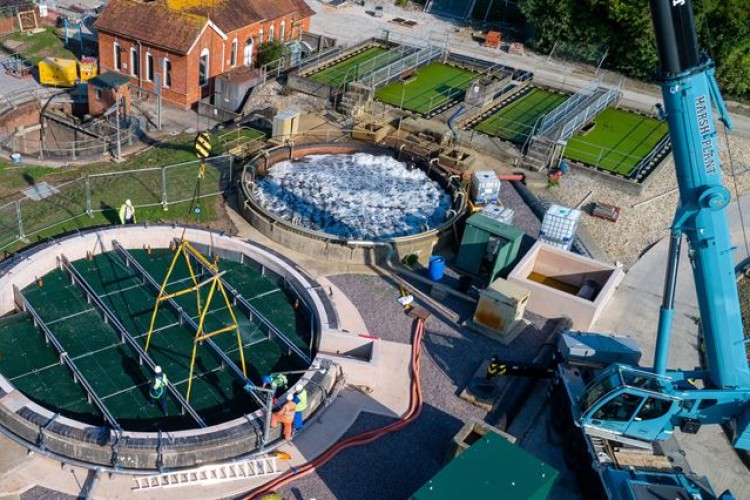Andrew Baird, technical director of wastewater systems manufacturer WPL, says that by collaborating more closely with their supply chains, water companies and other utility clients could get more from their suppliers.
Mr Baird claims that if companies designing wastewater treatment plants were shown specific site data ahead of a project’s design, as well as operational information post-completion, manufacturers and suppliers could ensure the best system is installed and operating optimally.
But some water companies are reluctant, or unable, to share data, he says.
As a design, build and install company, WPL supplies wastewater treatment equipment and in most cases, treatment plant design is based on theoretical criteria; usually generic data that can be up to 20 years old. If water companies made it possible for designers to base their designs on actual data – such as final effluent quality and power consumption – significant savings could be made, particularly around sizing and power consumption, Mr Baird says.
“Once a new treatment solution is in place, having insight into how the process is operating, including flow and load information and treated effluent quality, would offer a number of benefits,” he says. “From a product improvement perspective it would allow the designers to make minor alterations ensuring optimum performance. In terms of research and development, the information could help shape the supplier’s ongoing design work, enabling further refinements to the technology offered to customers, while driving innovation.”
WPL’s biggest data-led research project is at Petersfield wastewater treatment works’ environmental technology field station and is being carried out in conjunction with Portsmouth University.
“We are supporting a three-year PhD research project examining the data around energy consumption and process efficiency in WPL’s Hybrid-SAF wastewater treatment technology,” Andrew Baird explains. “The researcher is exploring how much power could be conserved at night when flows are low. Could smaller blowers be used? Information like this has real value - if a blower half the size could be fitted, significant savings could be made, savings that water companies are potentially missing out on by not sharing their own power consumption data.”

He says that when data had been shared by clients there have been clear benefits.
“A recent project with Welsh Water opened up new opportunities for collaboration when the onsite operations team provided practical feedback on WPL’s conical settlement tank. WPL subsequently redesigned the outflow weir resulting in an installation that is easier to clean and maintain,” he says.

“Another example of successful data sharing between client and supplier is at Wessex Water’s Sherborne wastewater treatment works where existing infrastructure was retrofitted with WPL’s Hybrid-SAF technology. By close collaboration from the outset, WPL was able to fully understand the objectives of the client, leading to a cost-saving of 75% in capital expenditure.
“Water quality data from the first year of operation shows that discharge from the plant is well within the Environment Agency’s permit. Ammonia levels in the discharge effluent are below the level of detection on a consent of 10mg/litre. Parameters on biological oxygen demand, turbidity and temperature have also been met.”
Mr Baird concludes: “WPL is still getting valuable performance data from the site, which is allowing the team to look objectively at the next steps. This really proves the value of openness and collaboration. I would encourage all utilities to consider working with their supply chain in this way. Ultimately, feedback and data helps companies improve their products, which supports clients in delivering long-term goals – enabling the whole sector to move forward.”
Got a story? Email news@theconstructionindex.co.uk



